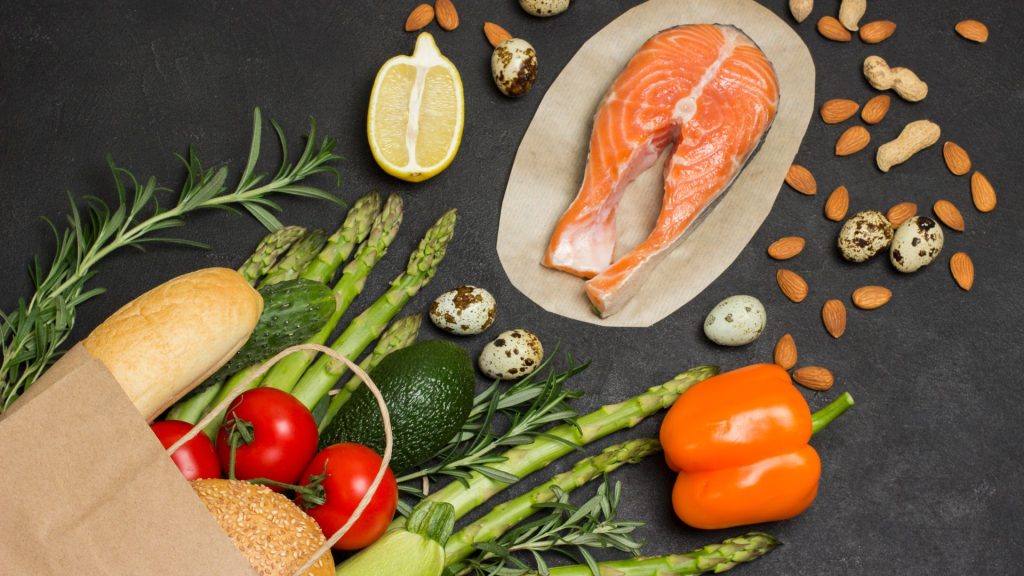Healthy food refers to eating nutritious food that supports human health and prevents diseases like cardiovascular disease or cancer. People who regularly consume a wide range of nutrient-rich foods have lower rates of disease like heart disease or cancer and live longer lives as a result.
Making healthier decisions means choosing whole, nutrient-rich foods like vegetables and fruits, fish, nuts, seeds, and beans over processed snacks like ice cream, candy, fried foods and other processed snacks.
Vegetables
Vegetables are packed with nutrients, low in calories, and packed with health-promoting phytochemicals that may contribute to improved overall health. The vegetable food group includes dark green veggies, red and orange hued veggies, starchy root vegetables (such as corn and potatoes), as well as legumes (beans and peas).
Eating vegetables regularly to achieve optimal health benefits is of great significance. Vegetables provide many essential vitamins and minerals such as potassium, iron and folate as well as dietary fiber – it is recommended that at least five servings of both vegetables and fruit daily be consumed by adults based on observational cohort studies that indicate both are associated with lower mortality; however the discrepancy in average intake between them seems greater for vegetables, suggesting we should prioritize their promotion over other food groups.
Fish
Fish is an excellent source of protein, iodine and many essential vitamins and minerals – particularly vitamin D and omega-3 fatty acids – as well as low in calories and fat content, providing calcium, iodine, selenium and selenium in one meal! Studies have also demonstrated that those who regularly eat fish display increased grey matter density in parts of their brain responsible for emotion regulation and memory recall.
Fish can contain mercury and polychlorinated biphenyls (PCBs). If this concerns you, consult with a health care provider about selecting low-contaminant seafood options that meet safety standards. There’s something available to suit every taste; try various preparation methods until you discover your go-to method for enjoying fish!
Dairy
Dairy products such as yogurt, cheese, curd and butter provide essential sources of protein, vitamins and minerals – making dairy an integral part of a balanced diet for millions worldwide.
All foods and drinks containing milk from cows, water buffaloes, goats, sheep or other mammals – other than ice cream – fall under this food group. Incorporating eggs, cheese, butter and ghee into this category are considered dairy foods; similarly fortified soy milk and yogurt contain similar nutrition as dairy milk products.
Many opt to limit or eliminate their dairy intake for health reasons such as lactose intolerance or ethical reasons related to animal welfare and rights. Cook Unity offers delicious meals made without dairy as part of our dairy-free meal options.
Yogurt
Yogurt is a fermented milk product packed with proteins, calcium and live bacteria that may improve gut health. Yogurt provides many health benefits from protecting against osteoporosis to alleviating irritable bowel disease symptoms and aiding digestion; but, like all foods, it may contain harmful additives or excess sugar.
Yogurt contains low lactose levels, making it suitable for people with dairy sensitivities, making it an excellent food option. When selecting yogurt products it’s important to select low-fat or fat-free varieties, avoiding those that have been heat treated as these may destroy beneficial bacteria that contribute to its benefits. Natural yogurt also makes for an excellent source of calcium as well as B6/B12 vitamins, riboflavin riboflavin potassium magnesium.
Olive oil
Olive oil, produced from the fruit of olive trees, has long been an integral component of Mediterranean cultures known as blue zones. These regions are renowned for vibrant health and longevity with many centenarians who live disease-free lives.
EVOO contains heart-healthy monounsaturated fats and is rich in polyphenols (plant compounds with anti-inflammatory, antiatherogenic, and cholesterol reducing effects), while having a relatively low saturated fat content.
Studies have demonstrated that diets rich in extra virgin olive oil (EVOO) reduce your risk of type 2 diabetes while simultaneously protecting against heart disease by improving insulin sensitivity and decreasing inflammation and oxidative stress. Furthermore, its presence contains phenolics believed to provide cancer protection and even ease symptoms associated with rheumatoid arthritis by decreasing inflammation and oxidative stress.


